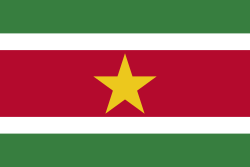CBvS Scandal
In 2020, the Central Bank of Suriname (CBvS) was embroiled in a corruption scandal that involved around $100 million. The fund, which was entrusted by private banks to the financial institution, was misused and at the center of the controversy was Robert van Trikt, the then governor of CBvS. He was accused of spending more than $800,000 for personal use, including the purchase of luxury vehicles. Van Trikt was convicted and sentenced to six years imprisonment for violating the country’s Anti-Corruption Act, forgery, embezzlement, money laundering, and participation in a criminal enterprise. [1]
Van Trikt was found to have engaged in fraudulent contract with the Belgian company Clairfield Belgium, which was also ordered by a Belgian court in a separate court proceeding to repay CBvS as the fees were declared to have been obtained through void contracts. Clairfield signed five of these contracts with Van Trikt in 2019. It was also found that Van Trikt used bank funds to pay for his wife’s loans. [2]
The bank governor, who was the son of a previous Education Minister, was not the only official implicated in the large-scale corruption case. Other high-ranking government executives were said to have participated and these include then Minister of Finance, Gillmore Hoefdraad, the former director of Legal Affairs of the Central Bank, Faranaaz Hausil, and the former director of the Surinamese Postspaarbank, Ginmardo Kromosoto. Hoefdraad and Hausil had both been convicted for their participation in the conspiracy. [2]
Recent corruption cases
By March 2024, no less than Suriname’s President Chan Santokhi and two of his cabinet ministers were involved in an alleged misappropriation of public funds. This stemmed from an investigation launched by the Public Prosecution Service concerning the disbursement of about $7.5 million to Pan-American Real Estate. The investigation was launched after an anonymous whistleblower filed a criminal complaint before the attorney general’s office. The transaction was alleged to have been completed based on falsified documents. [3]
In the same year, press freedom also came under scrutiny due to a legal battle over a book on corruption. Authored by Dutch entrepreneur Gerard van den Bergh, Corruption at the Highest Level: Doing Business in Suriname was at the center of the controversy. Santoki, who was one of the public officials cited in the book, not only filed a lawsuit against the book publisher but also targeted newspapers that featured it as well as bookstores selling copies. [4] The move raised concerns over the state of press freedom and expression in Suriname. [5] Some shops have already withdrawn the book from their shelves and instituted recall of sold copies. [4] Also included in Van den Bergh’s work are allegations of corruption by Livestock and Fisheries Minister Parmanand Sewdien and entrepreneur Vijay Kirpalani. [5]
